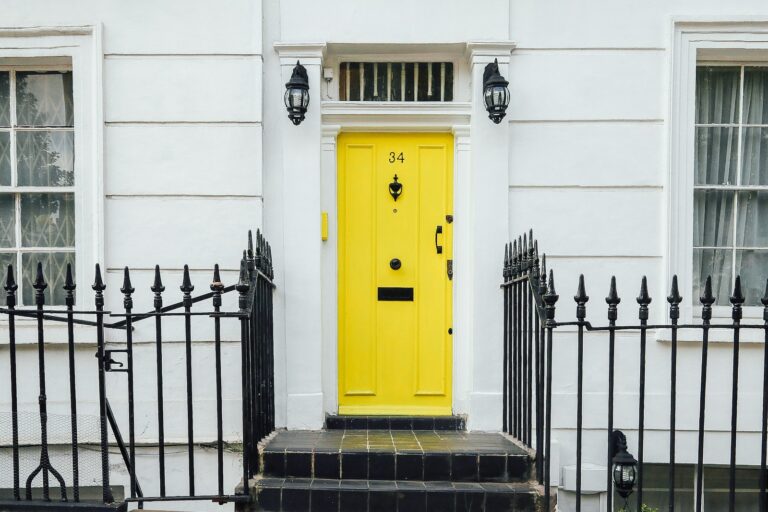Buying a Property in London
Location
Before you start your search for a new home in London, it’s important to think about what you want from a location. Do you want to be in the heart of the city, or would you prefer a more residential area? If you have children, you might want to be near good schools. Alternatively, you might want to be close to your workplace.

Consider the commute
When you’re buying a property in London, one of the things you need to take into consideration is your commute. If you’re buying a property that’s far from where you work, it’s important to consider how long your commute is going to be and whether or not you’re going to be able to make it to work on time.
If you’re buying a property in London, there are a few things you need to consider. One of those things is your commute. If you’re buying a property that’s far from where you work, it will take you longer to commute. You need to take into account how long your commute is going to be and whether or not you can make it to work on time.
Research the local area
When you start your property search you’ll quickly get a feel for the different areas of London. But it’s important to do some research too, so that you can be sure you’re making the right decision for your needs.
Here are some things to consider:
- Location – Think about whether you want to be in the city center or a more suburban area.
- Crime rates – check online for crime statistics in the area you’re interested in.
- Transport links – Consider how easy it will be to get around London from your chosen location.
- Schools – if you have children, or are planning to start a family, research the schools in the area and whether they meet your needs.
Find out about schools in the area
When you have children, you’ll want to choose a home in an area with good schools. Look up Ofsted ratings for schools in the boroughs you’re considering.
If you’re moving to London from another part of the UK, your children may be able to go to the same type of school they attend now. In England, there are four main types of schools:
- community schools,
- voluntary controlled schools,
- voluntary aided schools and
- grammar schools.
Community schools are run by the local authority and don’t have any religious affiliation. Voluntary controlled schools are also run by the local authority, but they were founded by a church. Voluntary-aided schools are a mix of state and independent funding; they usually have a religious affiliation. Grammar schools select their students based on academic ability.
Your child might be eligible for a place at a grammar school if you live in the catchment area and they pass the entrance exam.
The property
When it comes to property, London is one of the most expensive places to buy in the UK. However, with the right location and property type, you can find a place that suits your budget. In this guide, we’ll show you how to buy a property in London, UK. We’ll cover everything from finding the right location to getting a mortgage.
Get a survey
If you’re buying a property in London, UK it’s important to get a survey so that you know the condition of the property and can budget for any necessary repairs. Surveys come in different levels of detail, so you can choose the one that’s right for you.
A mortgage valuation is the most basic type of survey and is usually carried out by the lender at the same time as they value the property for their mortgage purposes. This will give you an idea of the value of the property and whether it’s worth the asking price, but it won’t give you any information about its condition.
A homebuyer’s report is a more detailed survey that will give you information about the condition of the property, any urgent or major repair work that might be needed, and an estimate of rebuild costs in case of fire or other damage.
A full building survey is a comprehensive inspection of the property that will give you detailed information about its condition and any repair work that might be needed. This is often recommended if you’re buying an older property or one that you know needs some work done to it.
Check the energy performance certificate
The certificate shows the energy efficiency for the property on a scale from A (very efficient) to G (inefficient). The higher the rating, the lower the fuel bills are likely to be. The certificate also gives information on emissions of carbon dioxide (CO2), which is linked to climate change.
If you’re thinking of buying a property, it’s important to check the energy performance certificate (EPC). The certificate shows the energy efficiency for the property on a scale from A (very efficient) to G (inefficient). The higher the rating, the lower the fuel bills are likely to be. The certificate also gives information on emissions of carbon dioxide (CO2), which is linked to climate change.
EPCs are produced by independent assessors and are valid for 10 years. They must be available free of charge before you buy a property. You can ask for an EPC from the seller, estate agent or letting agent.
It’s a good idea to check the EPC when you’re viewing a property, as it can give you an indication of how much it will cost to heat and light. It’s also worth considering whether any improvements could be made to make the property more energy-efficient and cheaper to run.
Have a professional check for damp
If you are buying a property in London, UK it is very important to have a professional check for dampness. Damp can cause major problems with the structure of a property and can be expensive to fix.
The price
Over the past year, prices in London have increased by nearly 10%. This is despite the Brexit vote and the resulting economic uncertainty. Many experts believe that the market is being driven by a lack of supply of properties, as well as low-interest rates and high employment levels.
Get a mortgage in principle

It will give you an indication of how much you can borrow and will make sellers more likely to accept your offer. It typically lasts for three to six months, after which you’ll need to reapply if you haven’t found a property.
You can apply for a mortgage in principle online, over the phone, or in the branch.
Compare mortgage rates
When looking for a mortgage, it’s important to find the best rate possible. Rates can vary significantly from one lender to the next, so it pays to shop around. The “big four” banks – Royal Bank of Canada (RBC), Toronto-Dominion Bank (TD), Bank of Nova Scotia (Scotiabank), and Canadian Imperial Bank of Commerce (CIBC) – all offer competitive mortgage rates.
You can also compare rates from other lenders, including online banks and credit unions. Keep in mind that you’ll need to provide some personal information and may need to meet certain eligibility requirements to get the best rates.
Make an offer
You’ve found your dream home, made an offer and it’s been accepted. So what happens next? This guide takes you through the final stages of buying a property in England, Wales, and Northern Ireland, from appointing a solicitor to exchanging contracts and arranging building insurance.
You’ll need to appoint a solicitor or conveyancer to carry out local searches, check the lease (if you’re buying a leasehold property), and help with the legal processes involved in transferring the ownership of the property from the seller to you.
Once you’ve found a solicitor or conveyancer, they’ll send you a client care letter outlining their fees and disbursements (costs related to your purchase that they will incur on your behalf, such as
Land Registry fees). They may also ask you for an ‘upfront retainer’ to cover some of their costs.
Your mortgage lender will also appoint a solicitor or conveyancer to act on their behalf.
Your lender will value the property to make sure it’s worth at least the amount you have agreed to pay for it. They will also do a local search and check the title deeds to make sure there are no problems that could affect their security.
After the sale
Completing the sale of your property in London can be both an exciting and daunting time. This guide covers the key points to remember after you have completed on the sale, including what to do if you have a problem with your property or need to move out of your property before the end of your tenancy agreement.
Instruct a solicitor
Now that you’ve found a property you want to buy, it’s time to instruct a solicitor or conveyancer to carry out the legal work on your behalf.
They’ll carry out local searches, check the title of the property to make sure there are no problems, handle the paperwork for transferring ownership, and deal with the Land Registry. They will also let you know how much stamp duty you need to pay.
Exchange contracts
The exchange of contracts is when the buyer and seller are legally bound to complete the sale. It’s usual to have a period of between 2 and 4 weeks between exchange and completion, to allow time to organise funding and for the buyer to move out.
The buyer will pay a deposit at this stage, which is usually 10% of the property price but can be more if the mortgage lender insists on it. Deposits are paid by bankers’ draft or telegraphic transfer. The deposit is held by the seller’s conveyancer until completion.
Once contracts have been exchanged, neither party can back out of the sale without significant financial penalties, so it’s important to be absolutely sure you want to go ahead before you exchange.
Complete the purchase
When you have exchanged contracts, you are legally bound to buy the property. You will now need to provide a 10% deposit unless you are a cash buyer. Your mortgage offer should be ‘unconditional’, meaning that you do not have to sell your own property first.
You will need to pay Stamp Duty Land Tax (SDLT) on properties over £125,000. This is a one-off tax payable to HM Revenue & Customs (HMRC).
Once you have paid the deposit and agreed on a completion date, the purchase is almost complete.


